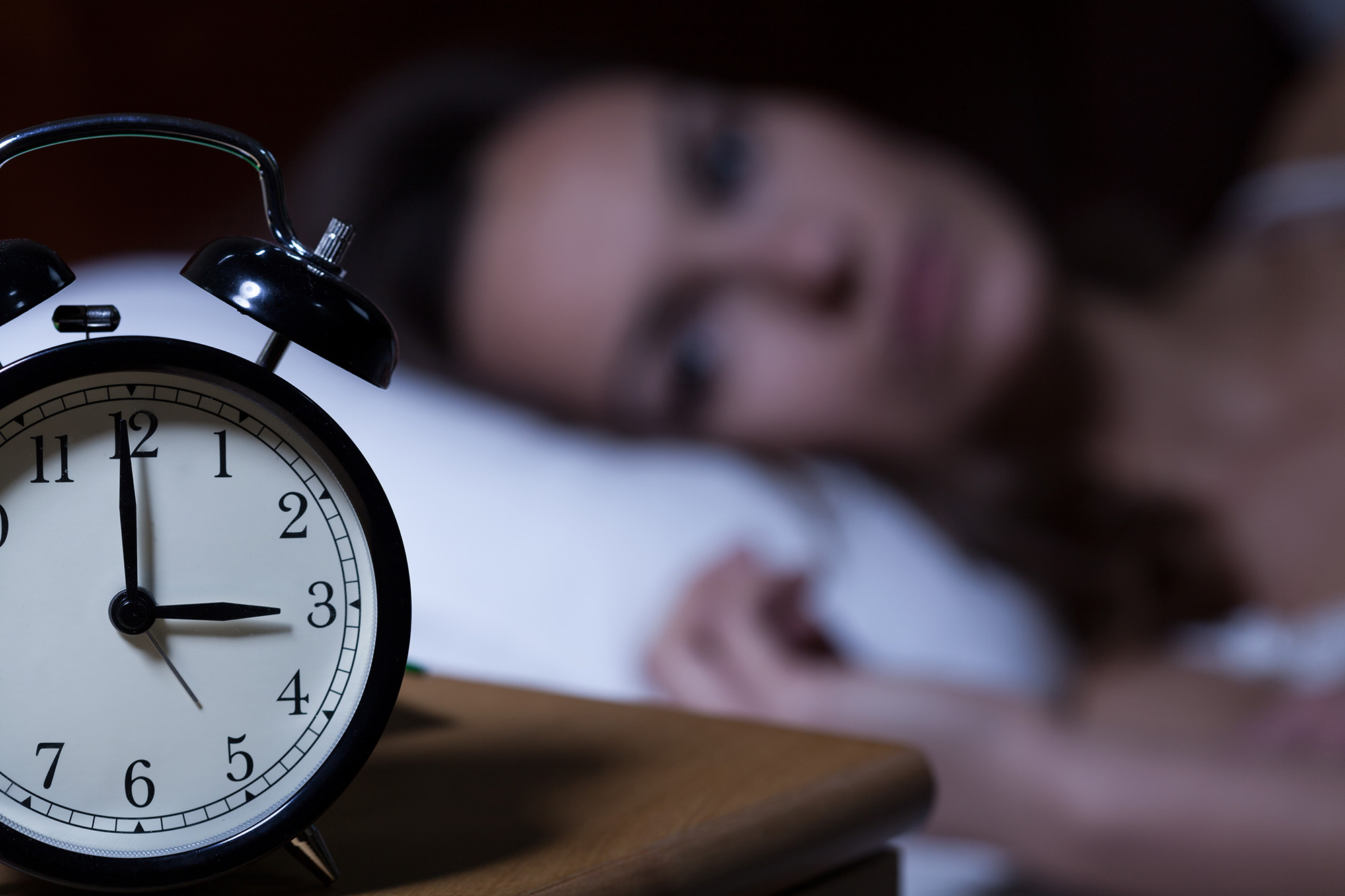Many women report that they experience insomnia or difficulty sleeping in the days leading up to menstruation. So, what causes this?
Premenstrual syndrome (PMS) has been shown to cause insomnia and hypersomnia (excessive sleepiness, particularly during the day). Many menstrual symptoms like cramps and bloating can disturb sleep due to the physical discomfort they cause, and the emotional symptoms such as irritability and stress can also contribute to insomnia.
There are two halves to the menstrual cycle: the follicular stage and the luteal stage. The first half of the cycle, the follicular stage, is when the body produces increased Oestrogen leading up to ovulation. The second half of the cycle, the luteal stage, is where Progesterone levels rise, which can often cause sleepiness. However, when both Oestrogen and Progesterone levels drop, towards the end of the cycle, insomnia can result.

A study in 2010 (https://www.ncbi.nlm.nih.gov/pmc/articles/PMC2817387/) showed that women experience less REM sleep during the luteal phase, which would explain why insomnia is more common. During this phase the increased levels of progesterone raise the core body temperature. A higher core body temperature leads to less REM sleep, as REM sleep corresponds with the lowest body temperatures during the night.
So what can you do to improve your sleep?
Sleep in a cool dark environment – As mentioned above, keeping cool is vital to achieve REM sleep. Also, keeping the bedroom dark is a good sleep practice as our bodies circadian rhythm is managed by light and the absence of it. So, turn those screens off, preferably at least half an hour before bedtime, and make sure your sleep environment is dark.
Give meditation and relaxation exercises a go – Breathing exercises and meditation are a great way to wind down and prepare your body and mind for sleep. There are a number of sleep focused guided meditations out there which will help you to doze off. There are also a great number of benefits to meditation which we won’t go into here, but why not give it a go!
Avoid Alcohol & Stimulants – Avoid drinking caffeinated beverages before bedtime, and ideally don’t drink them after midday. Avoiding alcohol can also have a huge positive effect on your sleep. People often find alcohol helps them to fall asleep faster but the quality of the sleep you experience is degraded, often leading to tiredness the next day.
Use white noise or an app – White noise can be very effective at inducing a restful state which is beneficial to sleeping. There are many apps out there which can provide white noise or other relaxing sounds to help you doze off, why not give them a go!
Get your hormones in check – Hormone levels dropping can lead to sleep issues and having hormonal imbalance can amplify these issues by making it harder to sleep and effecting the quality of the sleep you get. Excessive levels of either Oestorgen or Progesterone can lead to difficulty falling asleep or staying asleep. 30 PLUS NuWoman can help balance hormones, and we are often hearing from women who have found their sleep has improved since taking NuWoman. There are also a number of other natural ways to balance your hormones in this article.
30 PLUS NuWoman is available from Pharmacies, Health Food stores and Supermarkets, or online from our official store here.


Are these helpful for 49 year old.
Hi Mary, hormonal imbalance doesn’t discriminate against age. If you feel that what you’ve read seems familiar then NuWoman could be an option for you.
Are you able to use these if you are on anxiety tablets. I have just been diagnosed with anxiety though prior to this I was having issues sleep h now it is worst! I am trying to find an alternative for using sleeping tablets. Your advice would be appreciated.
Hi Kitty, As we do not know the exact medication you are taking we would recommend that you speak with your healthcare practitioner before starting NuWoman